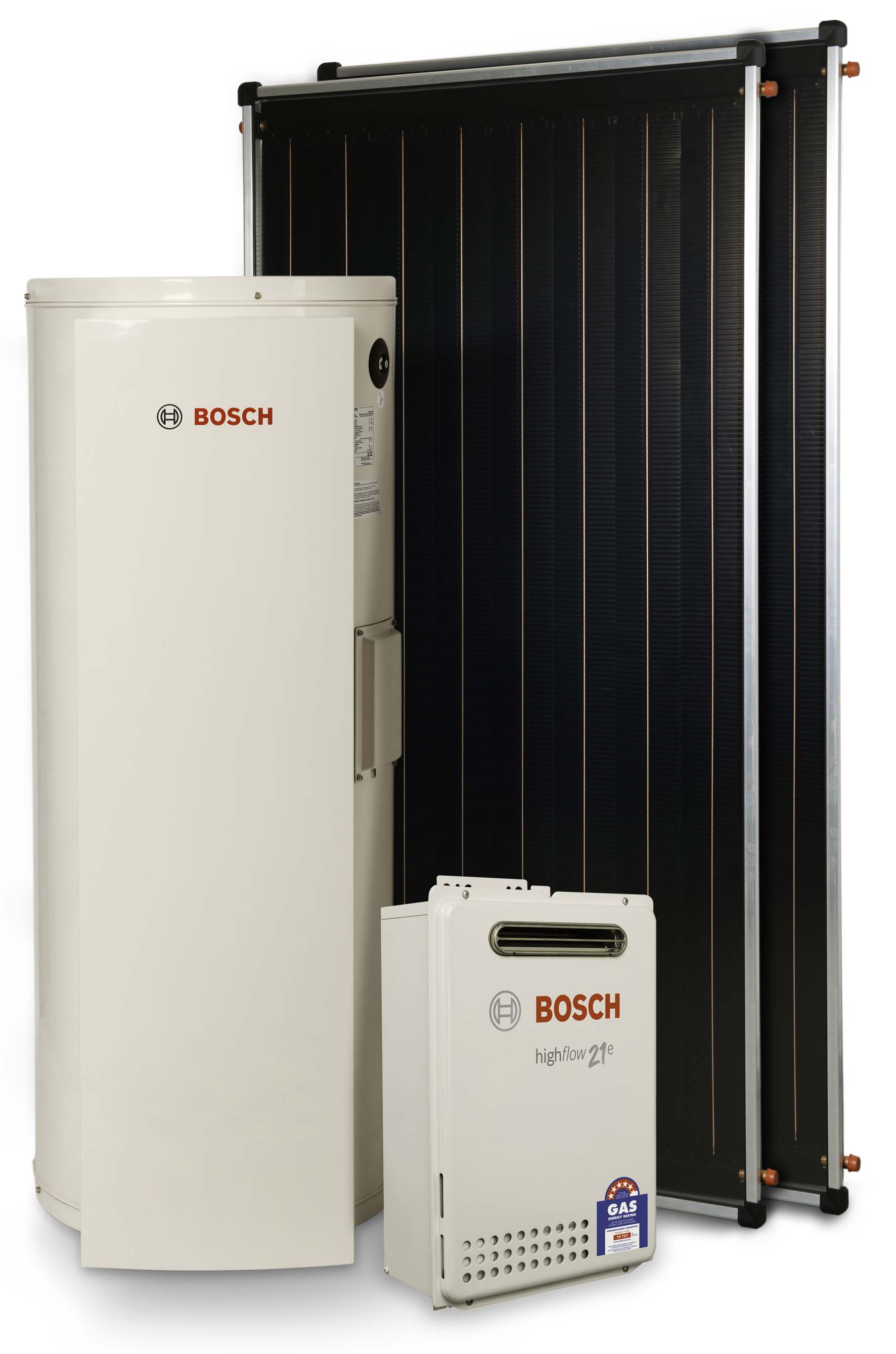Solar innovation

The decision to move into solar hot water systems was far from hasty for Bosch, and it was only made due to the benefits of the brand’s various research and development facilities across Europe.
“Solar hot water has been developed and sold for more than 30 years in Europe,” Julia says. “With local energy prices on the increase it has become more pertinent for Australians looking to reduce their ongoing running costs.”
As a product manager, Julia is responsible for managing Bosch’s solar hot water product range in Australia and New Zealand. The role involves monitoring price levels and driving development projects to ensure products match up to changing demands in the market.
“The global solar thermal market is currently dominated by China, Europe, Japan and India,” Julia says. “Australia follows closely behind these countries in the ranking which is great given our population is much smaller than those of the leading countries.”
The growing penetration of solar hot water locally means Australia is now able to compete with the biggest solar hot water markets around the world.
For those homeowners considering a solar hot water system, Julia says a positive side effect is the significant reduction of CO2 emissions.
“When less energy is being consumed, there are obvious positive effects on the environment. While some of the government rebates have been removed there are still a lot of subsidies available out there.”
Julia advises home owners to consider buying or upgrading to a solar hot water system while these rebates are still available.
With hot water contributing to more than a quarter of household energy bills, the savings associated with installing a solar hot water system should not be forgotten.
“According to Sustainability Victoria, gas-boosted solar hot water and off-peak electric boosted hot water offer the lowest running costs. This is more and more important as energy costs continue to increase.”
Homeowners should take care not to make simple mistakes that undermine their ability to maximise cost savings.
“Customers often leave the hot water replacement until the last minute when the system has actually already broken down and they have to organise an emergency replacement,” Julia says.
“In this case, householders have often not saved up any money for an investment such as a solar hot water system. Instead of looking at what will save them money in the mid- to long-term, they will go for a cheaper hot water system which has comparatively higher running costs.”
To counter this trap, Bosch recommends having your hot water serviced regularly especially if the system is more than a few years old. This will inform when a hot water system is likely to break down, and allow householders to make a more educated decision regarding system replacement.
Julia says that while buying an energy efficient hot water system is an effective way of reducing running costs, choosing the right system is imperative to maximise return on investment.
Bosch recently introduced its Elite range, with a choice of two new solar hot water systems. Customers now have the option of the Rooftop or Split solar system.
Julia says the choice will depend on the individual.
“The benefit of the Rooftop system is that it is quite affordable and low maintenance as it doesn’t require a pump or solar controller. It also saves space around the house as the storage tank sits on the roof. Comparatively the Split option is preferred by some given it is less visible on the roof of a property.”
